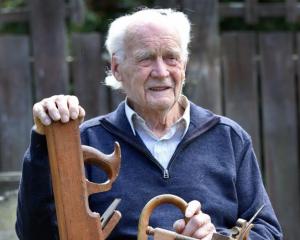New Zealand cannot afford to be complacent about high levels of multi-drug-resistant tuberculosis in many Asia-Pacific countries, including China and Burma, Prof Greg Cook says.
Prof Cook, of the University of Otago microbiology and immunology department, is working closely with medical researchers in Burma to find more effective ways to diagnose and treat multi-drug-resistant Tb in that country.
New Zealand's Tb level was only a tiny fraction of that in Burma, he said.
But most of the new cases encountered in New Zealand were among people who had travelled from Asian countries or the Pacific islands.
It was clearly in New Zealand's best interests to counter drug-resistant Tb in other countries, in order to avoid being adversely affected by visitors or immigrants with antibiotic-resistant strains of the disease.
The first case of extensive drug-resistant tuberculosis in New Zealand occurred in Dunedin in 2010, and had involved a man who had migrated from Burma. He had survived after a lengthy treatment, including the use of antibiotics specially imported from the United States.
Dr Thanda Tun, a PhD student from a leading medical university in Burma, left Dunedin recently after spending 10 weeks working with an Otago University postdoctoral research fellow, Dr Htin Lin Aung, who was also born in Burma, and with Prof Cook.
She was studying multi-drug-resistant tuberculosis from Burma and elsewhere.
Current antibiotics often target the bacterial cell wall, and protein and DNA synthesis, but Prof Cook's research team has developed potential new antibiotics that target the energy source within bacteria.
Prof Cook this month received a $150,000 Health Research Council grant to continue development work on such drugs, which could help doctors keep pace with the growing problem of antibiotic resistance.
Prof Cook said overall rates of Tb, and of drug-resistant Tb, in Burma were high, and doctors there faced a ''terrible'' reality with some current diagnostic technology.
Conventional microbiological testing to determine if a patient had a strain of drug-resistant Tb could take up to three months.
But many patients with both Tb and HIV would die in less than a month without receiving effective drug treatment.
Prof Cook is working with scientists such as Dr Tun to develop a more modern genomic analytic kit which could identify drug-resistant organisms much more quickly than previously, and help deliver more effective drug therapies.
The researchers are also working in partnership with Prof John Crump and Prof Philip Hill at Otago University's Centre for International Health.
Otago University and the University of Medicine (1) in Burma formed an international academic partnership in late 2012.












